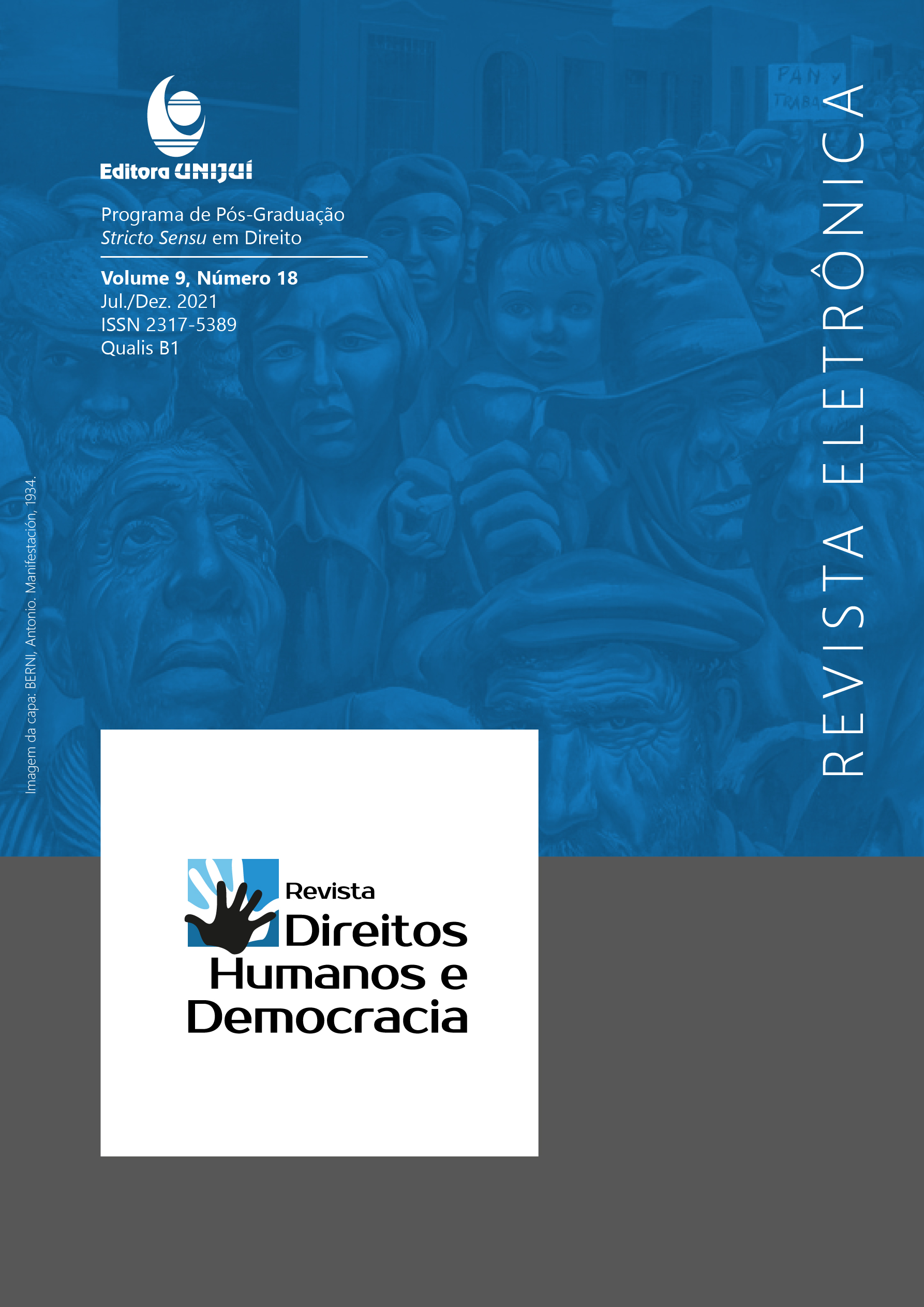OS MECANISMOS DE PARTICIPAÇÃO POPULAR NA GESTÃO DO MEIO AMBIENTE À LUZ DO TEXTO CONSTITUCIONAL: ASPECTOS POSITIVOS E NEGATIVOS
THE POPULAR PARTICIPATION MECHANISMS IN ENVIRONMENTAL MANAGEMENT TO LIGHT THE CONSTITUTIONAL TEXT: STRENGTHS AND WEAKNESSES
DOI:
https://doi.org/10.21527/2317-5389.2021.18.5723Abstract
No Brasil, a questão ambiental passou a ter relevância jurídica, pois o direito de viver num ambiente ecologicamente equilibrado foi erigido à categoria de Direito Humano Fundamental. Sob a perspectiva da Constituição Federal e da legislação infraconstitucional, o presente artigo analisa a participação popular nas decisões ambientais. Após, aborda-se os fundamentos constitucionais do direito à participação e os princípios que o norteiam. Posteriormente, menciona-se quais são os mecanismos disponibilizados pelo direito para viabilizar esta participação na seara do direito ambiental. Por fim, discute-se se a previsão legal destes mecanismos é suficiente para garantir a efetividade do direito à participação. Palavras-chaves: audiências públicas; democracia; meio ambiente; participação popular.Downloads
Published
How to Cite
Issue
Section
License
By publishing in the Revista Direitos Humanos e Democracia, authors agree to the following terms:
Articles are licensed under the Creative Commons Atribuição 4.0 Internacional (CC BY 4.0), which allows:
Share — copy and redistribute the material in any medium or format;
Adapt — remix, transform, and build upon the material for any purpose, including commercial use.
These permissions are irrevocable, provided the following terms are respected:
Attribution — authors must be properly credited, with a link to the license and indication of any modifications made;
No additional restrictions — no legal or technological measures may be applied that restrict the use permitted by the license.
Notices:
The license does not apply to elements in the public domain or covered by legal exceptions.
The license does not grant all rights required for specific uses (e.g., image rights, privacy, or moral rights).
The journal is not responsible for opinions expressed in the articles, which remain the sole responsibility of the authors. The Editor, with the support of the Editorial Committee, reserves the right to suggest or request modifications when necessary.
Only original scientific articles presenting research results of interest, not previously published or simultaneously submitted to another journal with the same purpose, will be accepted.
References to trademarks or specific products are intended solely for identification purposes and do not imply any promotional endorsement by the authors or the journal.
License Agreement: Authors retain copyright over their articles and grant the Revista Direitos Humanos e Democracia the right of first publication.













